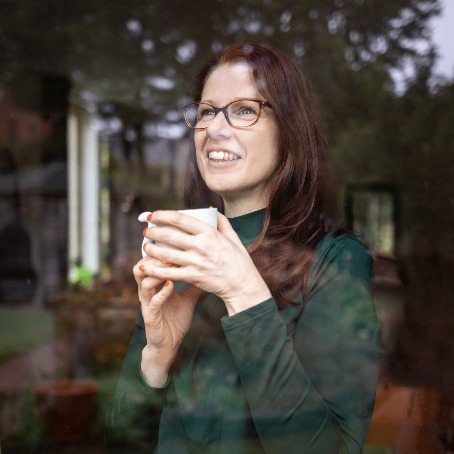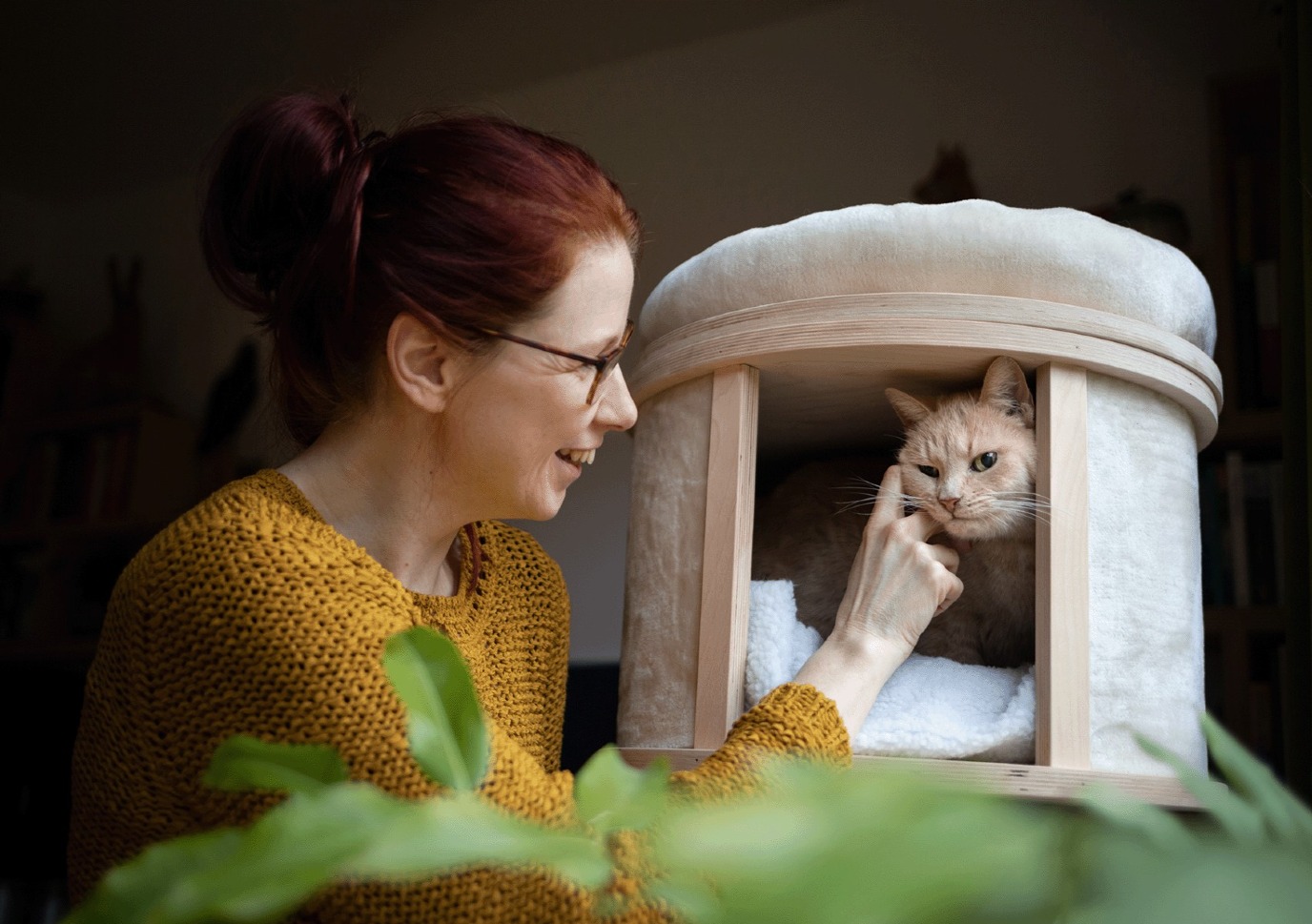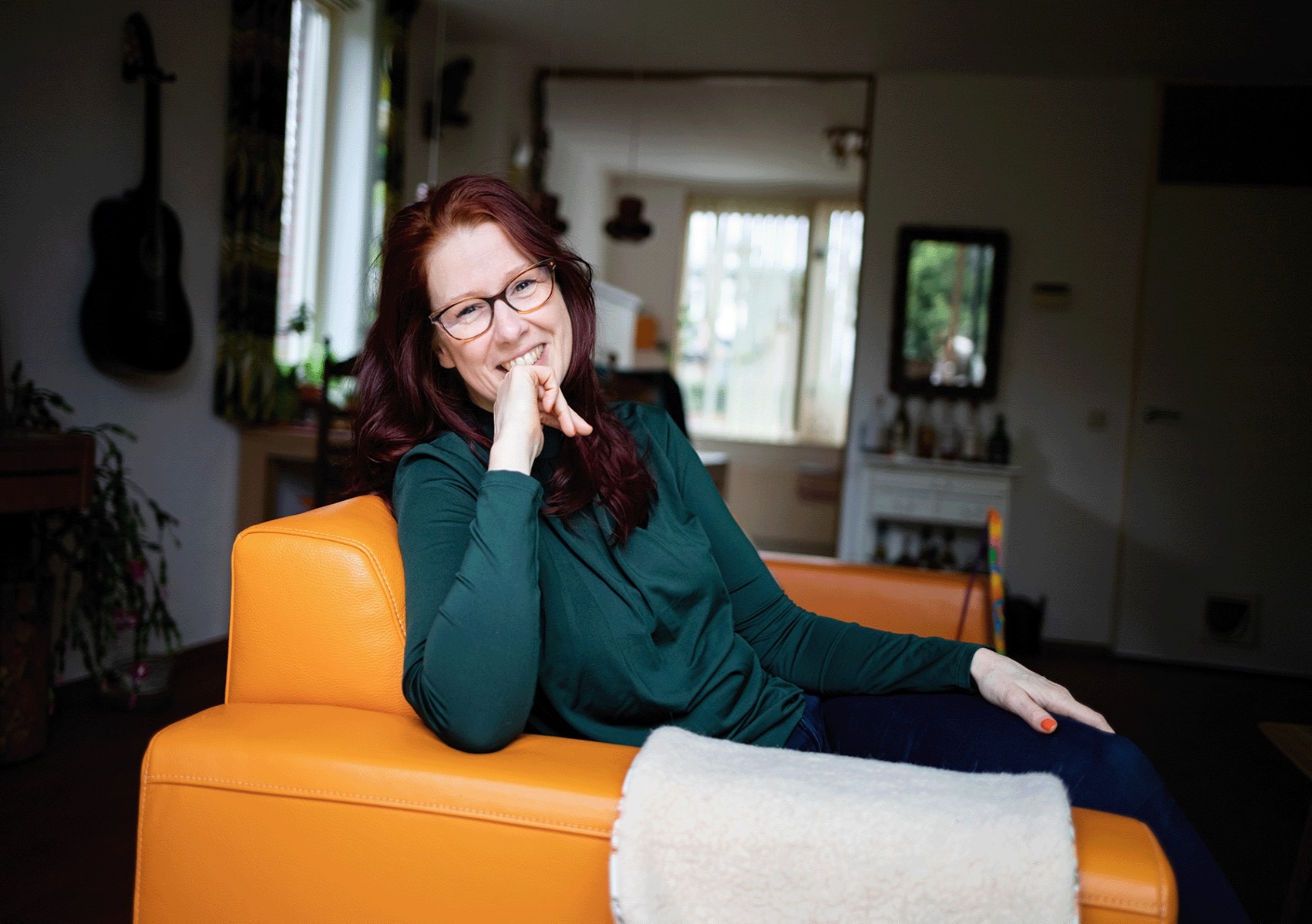What your pet wants is not always what you believe it wants

Let there be no doubt about it: researcher Esther Bouma is crazy about animals. Especially cats. She even has a consultancy firm for cat owners, called Katsgewijs. A much needed service, because the ways in which people think about their pets these days, and especially the ways in which they think for their pets, is not always in the animals’ best interests. And that can lead to unpleasant situations. Bouma is one of a handful of people who study the impact of humans on animal wellbeing.
Text: Jaap Ploeger, Corporate Communicatie / Photos: Mitsuko Fliervoet
Ascribing human characteristics to animals is something we humans have a natural tendency to do. It helps us empathize with others and predict their behaviour. But pets often have other motivations for their behaviour than humans. We think that we understand our animals well, but do we? Complex emotions, such as shame or jealousy, are unlikely to be part of a cat’s repertoire, yet they are often ascribed to them. Bouma laughs. ‘Cats, for example, know no shame. We think they do because we do not enjoy defecating in public. That is why we give our cats closed cat toilets with little flap doors. And of course also because we don’t want to see or smell their poop.’
Remarkable career path
Esther Bouma's career path has not exactly been straightforward, but human and animal behaviour is clearly its central theme. She graduated as a biologist and completed a PhD dissertation in social psychiatry. Since 2014, she has worked at the UG's CIT department as an institutional researcher, conducting surveys among PhD students, lecturers, and students, for example on the effect of the Binding Study Advice. In between, Bouma was seconded for two years to the Social Health department of Professor Arie Dijkstra, where she worked as a postdoc on a project initiated by the Dog Protection Services. ‘The main question in that project was: are people well-prepared for adopting a dog? Thanks to this project and the contact with Arie, I once again became involved in research on the relationship between animals and humans. I now primarily do research on how owners look at their pets, and how this affects the animals’ well-being. It turns out that there is a lot of research on how animals affect people’s well-being, but very little the other way around. And that is something that I would like to know more about.’

Human-animal relationship is complex
Bouma is intrigued by behaviour. Why do animals do what they do? And humans too of course. After all, humans are animals too. ‘If you look at human evolution, you see that the group and what others think of us has been, and still is, very important for our survival and wellbeing. But other members of the species are not so important for cats, who are solitary hunters. Feral cats only live in groups when there is enough food. So when we feel sorry for our cat because they are alone at home all day, we are attributing emotions to them that they don’t have at all. The owner thinks: “Oh, that poor kitty; it needs a friend.” And so they get a kitten, because that is supposedly less threatening.’ But most cats are not at all happy to have another cat in their territory, irrespective of whether the intruder is young or old.’ We humans need friends, but that does not necessarily apply to our cats. We anthropomorphize our pets by looking at their behaviour through the lens of our human experience. Possibly with all kinds of behavioural problems as a result.’
Jealous cat?
In her cat practice, Bouma often hears people ascribe all sorts of complex emotions to their cats. ‘A cat that is suddenly confronted with another cat in the household may display behaviour that the owners interpret as jealousy, such as chasing the other cat, or, as revenge, such as peeing on the sofa. But very often, there is something else going on. Maybe the cat is afraid of the new cat, or they cannot reach their cat toilet, and that is why they are peeing on the sofa. It’s really interesting how people project their own emotions onto their pets. Jealousy is apparently a very important emotion for us, while there is so far no evidence whatsoever that a cat ever feels it.’

Observe and learn
Bouma: ‘I often hear people say that their cat was aggressive, or scratched or bit them “out of the blue”. The thing is, it’s rarely out of the blue; the cat has often already indicated in subtle ways that it was done with petting. I advise owners to observe their cat carefully. If you pet a cat, and their ears move backwards, their tail starts swishing, and the cat looks around once or twice, it's best to stop petting them. But because people are watching TV, or they are on their phone, they often completely miss these signals, and then the cat is forced to send clearer signals. Not all cats do this, of course; depending on their individual personalities, they might bite you, or simply jump off your lap. You can learn so much by observing animal behaviour. For example, a cat that is always rubbing itself against the sofa is trying to spread its scent, perhaps because it doesn't feel completely safe in the environment. Another important thing to know is that a cat that hisses is not angry, but frightened.’ Bouma believes that it is important that people get to know more about their pet. This can simply mean observing what your pet does more often, but also finding out more about the species as a whole. Because a cat is not a dog, and also not a small human.
Look before you leap
Wrong interpretations of behaviour can have negative consequences for your pet, such as stress or fear, but also for your bond with your pet, for example if your pet uses aggression to mark their boundaries. According to Bouma, it is important that current and future pet owners read up on the animal species they plan to acquire. And that they consider carefully whether they can offer this animal what it needs to engage in its own species-specific behaviour. Some cats like to sit up high, so make sure they can do so. If a cat keeps scratching the sofa, they probably need a stronger scratching pole. There can be all sorts of reasons why an animal does what it does; the best way to understand their behaviour is by knowing something about them. But projecting human emotions onto pets is usually not the best way forward.
More news
-
17 February 2026
From Ghostbuster to Disaster Researcher
-
03 February 2026
‘Such willpower’
-
20 January 2026
Alcohol, texting, and e-bikes
